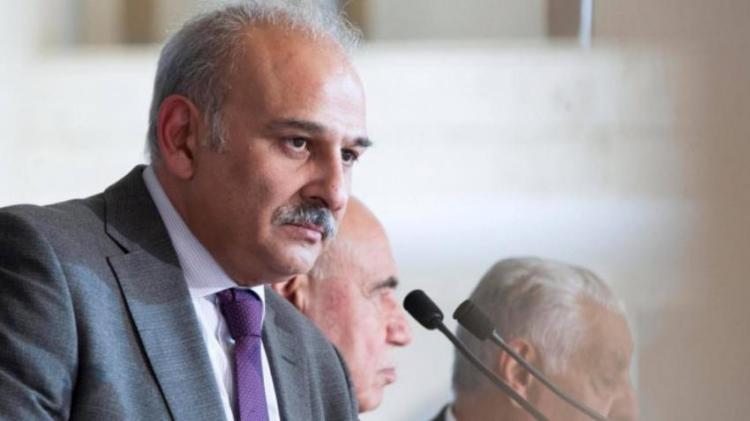"Our engagement with the drafting a new constitution would be cautious" – HNC deputy
Jamal Suleiman, the deputy chairman of the Syrian opposition’s High Negotiations Committee (HNC), said that they are very cautiously entering the process of drafting the new constitution, which is based on the principles of citizenship and peaceful transfer of power in a positive spirit.
In his interview with North-Press, the Syrian actor and politician Jamal Suleiman said that the Syrian government has only agreed to participate after being under great pressure. “Throughout about two years of deliberating the idea of the Constitutional Committee as an entrance to the political process leading to the political transition, which was stipulated by all international countries, the (Syrian) regime resorted to all tactics available to escape this entitlement,” he said.
He stressed that they would resist any further attempts by the Syrian government, through which it will search for excuses to disrupt the process of achieving the hoped-for constitution. Suleiman said: “We hope this will not happen, but we have no illusions that everything will go smoothly, however, we will resist those attempts in case they happen”.
Suleiman added that once a round of negotiations begins, the Syrian government steps up its military operations, “to put maximum pressure on the opposition to suspend its participation, and bear it the consequences of disrupting the negotiating process rather than bear itself,” he said.
He explained that the solution for the opposition was lied in sticking to the negotiating option, and at the same time demand the international community to put pressure on the Syrian government to stop the use of violence, since it does not hesitate to use it whether there are negotiations or not.
fighting and violence will not stop, whether the opposition participated in the constitutional process or didn’t. “Nevertheless, the presence of terrorist organizations is a pretext for the regime to justify its violence, where it results in the biggest losses which are inflicted on civilians and infrastructures, that barely provide a minimum standard of living,” he added.
On the other side, the Syrian Foreign Minister Walid al-Moualem said during his speech in New York at the United Nations meeting before world leaders: “We are determined to continue our war against terrorism in all its forms until the last remaining terrorist is uprooted”.

